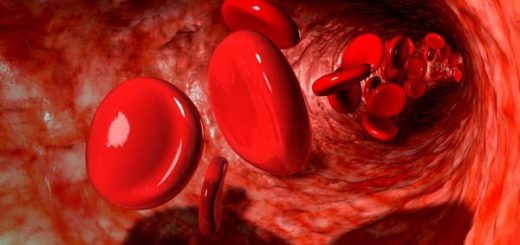FDA grants accelerated approval pathway to voxelotor new drug application
![]()
By Julia Ernst, Ms
Following the positive results of the HOPE Study at ASH Annual Meeting and Exposition, Global Blood Therapeutics announced it will submit a new drug application to the FDA for voxelotor through an accelerated approval pathway, according to a press release issued by the company.
Voxelotor (GBT440, Global Blood Therapeutics), which is indicated for the treatment of sickle cell disease, is a novel hemoglobin S polymerization inhibitor. It increases hemoglobin’s affinity for oxygen, thereby blocking polymerization and the subsequent sickling of red blood cells. By increasing hemoglobin, voxelotor may reduce the likelihood of strokes in patients with sickle cell disease, according to the press release.
Transcranial doppler flow velocity will serve as the primary endpoint in a post-approval confirmatory study designed to demonstrate the reduced risk for stroke in patients with sickle cell disease.
Global Blood Therapeutics will ask for a pre-new drug approval meeting in the first quarter of 2019, where it will share additional details about its plan and timeframe for the new drug approval study. They will also provide more details on the transcranial doppler flow velocity post-approval study after this meeting, according to the company.
Researchers presented preliminary results from the HOPE study in adults and adolescents with sickle cell disease. In Part A of the HOPE study, patients with sickle cell disease aged 12 years and older (n = 154) were randomly assigned to receive voxelotor 900 mg or 1,500 mg daily or placebo. Earlier results demonstrated an improvement in hemoglobin levels of more than 1 g/dL among patients treated with the 1,500 mg dose compared with patients receiving placebo at 12 weeks.
Updated results from the HOPE study presented at the meeting demonstrated that 65% of patients in the 1,500-mg voxelotor arm and 33% of patients in the 900-mg arm experienced an increase in hemoglobin of more than 1 g/dL at 24 weeks compared with 10% of patients in the placebo arm. Improvements in hemoglobin were seen as early as 2 weeks and maintained through 24 weeks.
Improvements in hemoglobin among patients treated with voxelotor were comparable regardless of background treatment with hydroxyurea. Improvements in reticulocytes and bilirubin were also observed in both groups receiving voxelotor. The goal is to generate safety and efficacy data for another 118 patients in the HOPE study to help support the new drug application, according to company.
Voxelotor was previously granted fast track, orphan drug, rare pediatric disease and breakthrough therapy designations by the FDA.
“Acute and chronic brain injury that frequently manifests as cognitive disorders and includes severe complications such as stroke has a major impact on a patient’s quality of life and future productivity. Our current approach to mitigating these risks via chronic transfusions has significant downsides and associated lifelong complications,” said Kim Smith-Whitley, MD, clinical director of the division of hematology, professor of pediatrics at the University of Pennsylvania Perelman School of Medicine and director of the Comprehensive Sickle Cell Center at the Children’s Hospital of Philadelphia. “A once-daily oral therapy that has the potential to safely improve the anemia of sickle cell disease and thereby preserve brain function would be a major breakthrough.” – by Julia Ernst, MS
References:
1. FirstWord Pharma. ASH18: Global Blood Therapeutics details positive late-stage data as FDA permits speedy filing for voxelotor in sickle cell disease. https://m.firstwordpharma.com/ash18-global-blood-therapeutics-details-positive-late-stage-data-fda-permits-speedy-filing-voxelotor. Accessed December 4, 2018.
2. Global Blood Therapeutics. GBT announces U.S. FDA agrees with its proposal relating to accelerated approval pathway for voxelotor for the treatment of sickle cell disease and GBT plans to submit new drug application. http://ir.globalbloodtx.com/phoenix.zhtml?c=254105&p=irol-newsArticle&cat=news&id=2379031. Accessed December 4, 2018.




Recent Comments